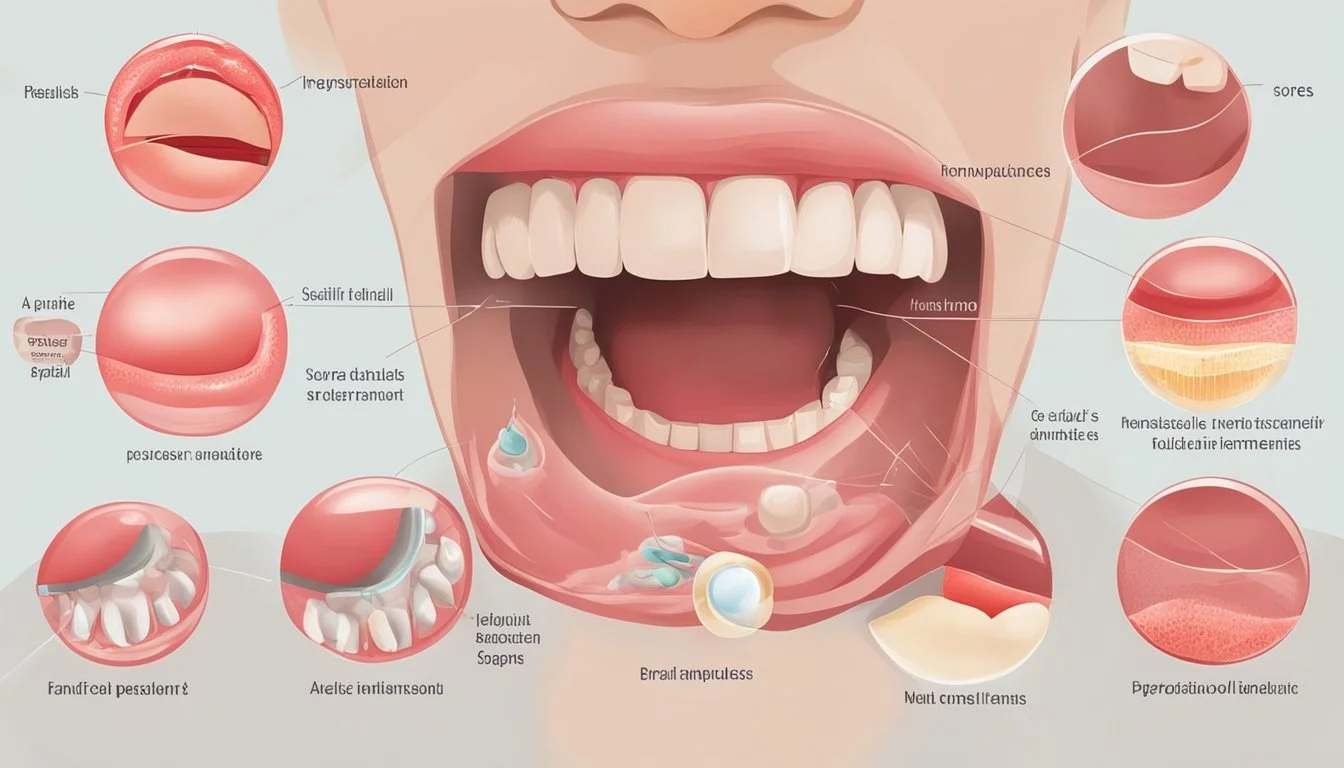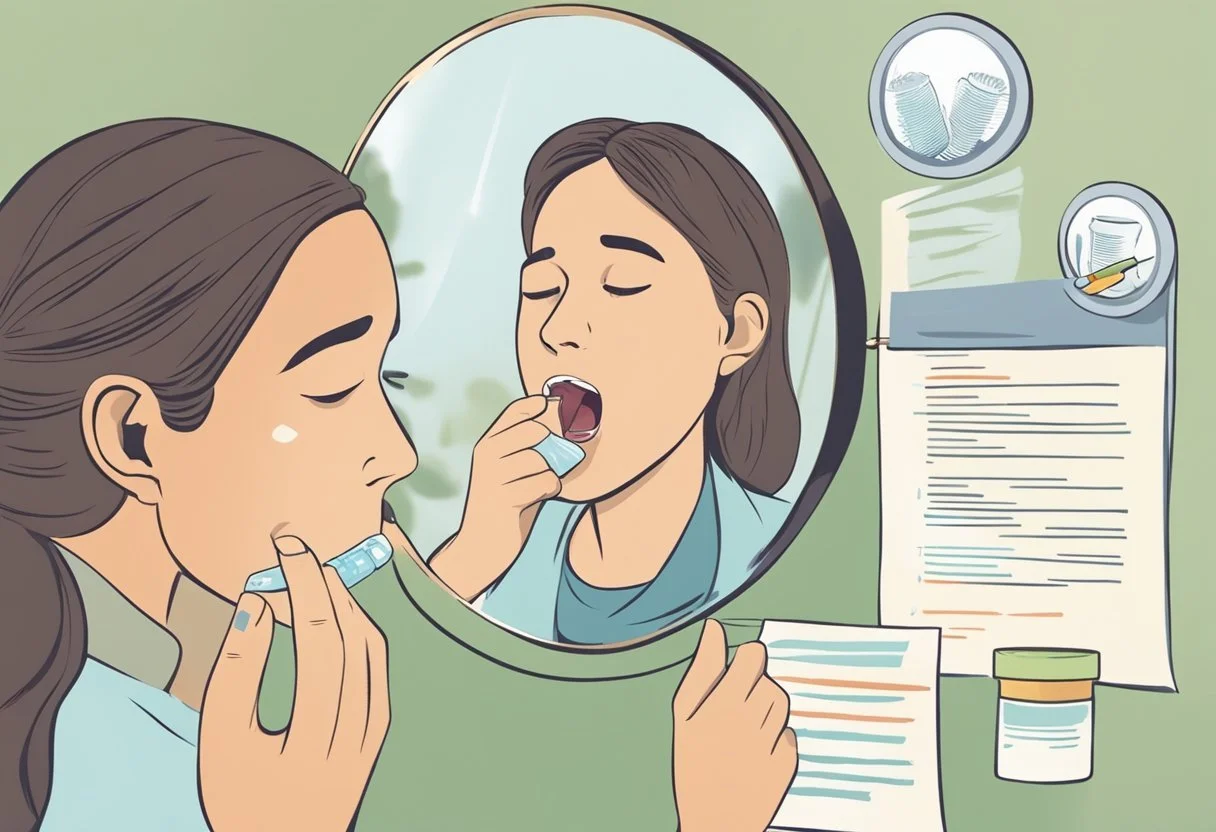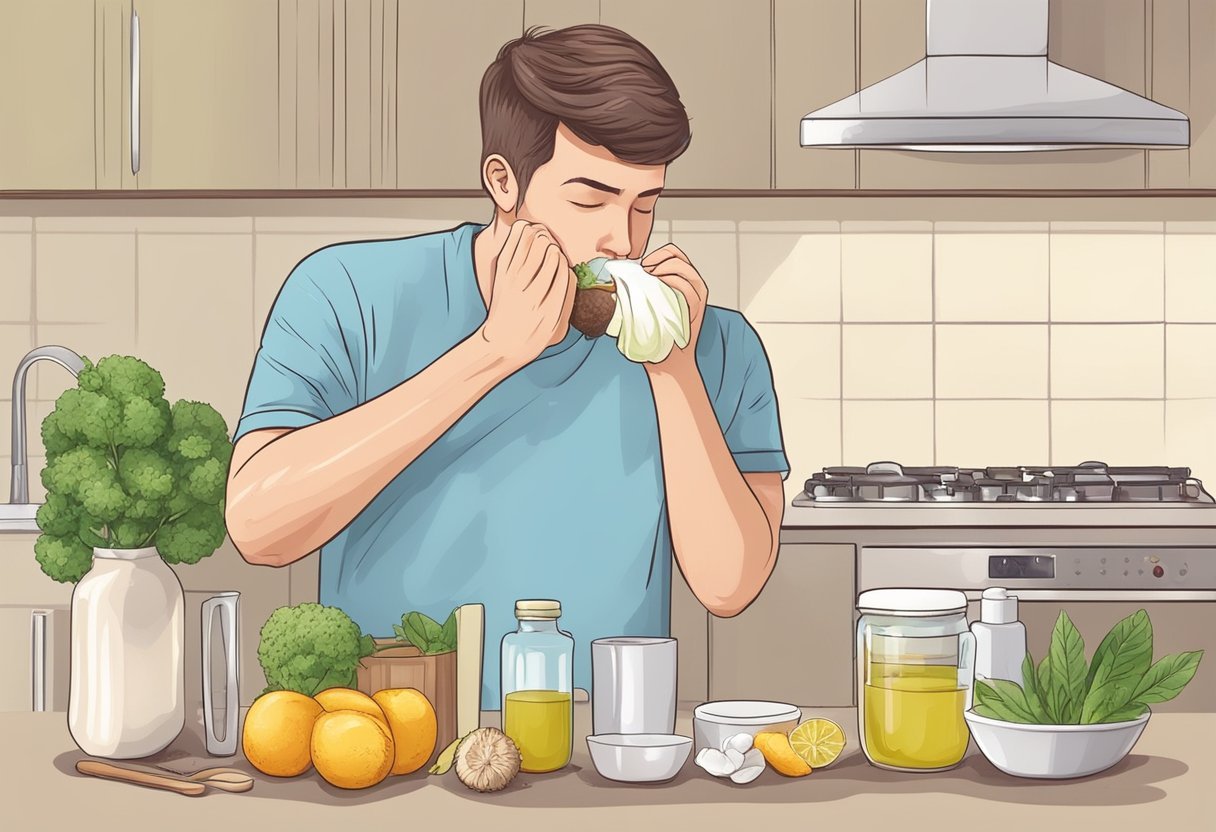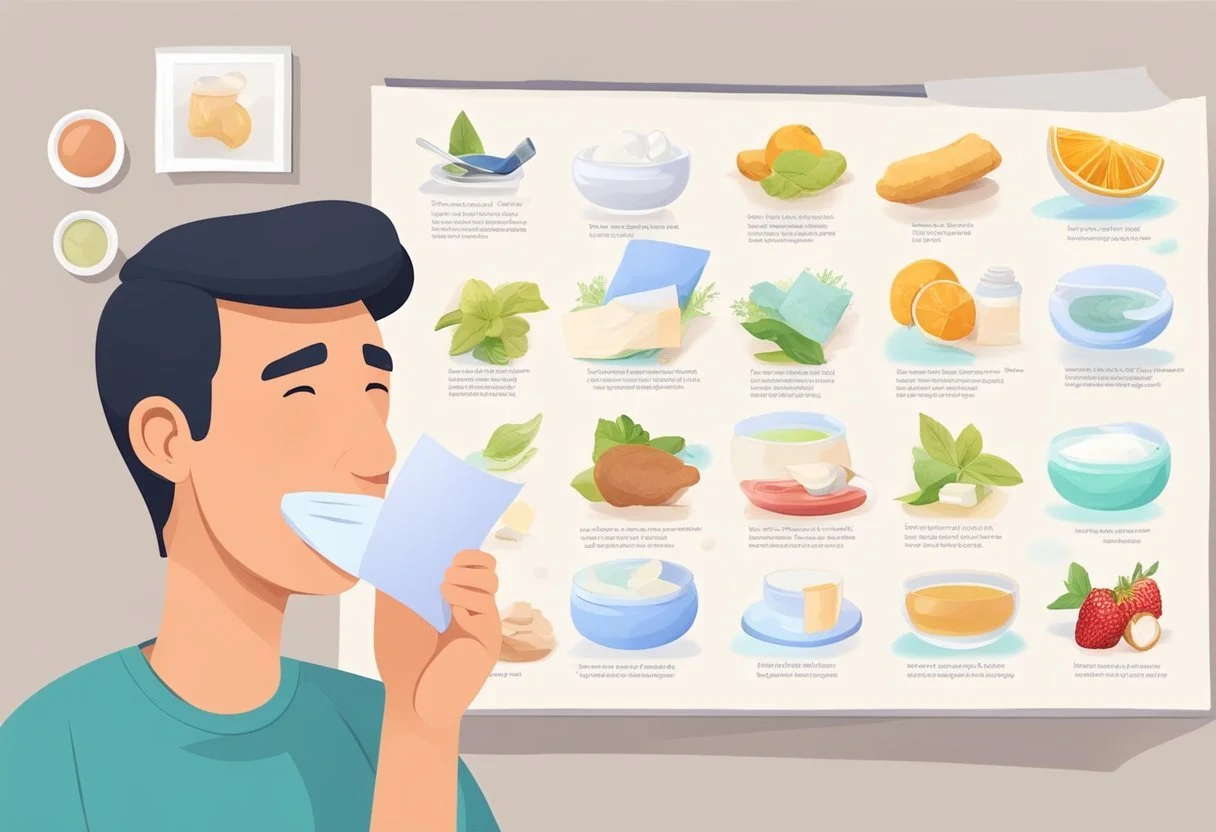Canker Sores
Symptoms, Causes, and Home Remedies
Discover > Health Conditions > Canker Sores: Symptoms, Causes, Home Remedies
Canker sores, also known as aphthous ulcers, are small, shallow, and painful lesions that develop inside the mouth. These uncomfortable sores can be a nuisance, making everyday activities like talking and eating a challenge. While they may seem alarming, canker sores are a common oral problem affecting millions of people worldwide. This article will explore the symptoms, causes, and useful home remedies for managing and treating canker sores.
The exact cause of canker sores remains unclear, but various factors may contribute to their development. Some common triggers include emotional stress, hormonal fluctuations, and minor mouth injuries. Additionally, certain deficiencies in vitamins and minerals, as well as food sensitivities, can make an individual more prone to these bothersome ulcers.
Fortunately, there are several home remedies that can help alleviate the pain and discomfort associated with canker sores. These remedies aim to speed up healing, reduce inflammation, and prevent bacterial infections that could worsen the condition. In the following sections, we will discuss some simple and effective home remedies for canker sore relief.
What Are Canker Sores
Canker sores, also known as aphthous ulcers, are small, shallow, and often painful lesions that develop inside the mouth, typically on soft tissues like cheeks, lips, gums, and tongue. They are distinct from other types of mouth sores, such as cold sores, which are caused by the herpes simplex virus and occur outside the mouth.
There are three main types of canker sores:
Minor canker sores: These are the most common form and account for 80% of all cases. They are typically small, oval-shaped, and heal within one to two weeks without scarring.
Major canker sores: Less common but larger and deeper than minor sores, these can take several weeks to heal and may leave scars.
Herpetiform canker sores: These are the rarest form, characterized by clusters of tiny pinhead-sized ulcers that merge to form a larger sore. Despite their name, they are not related to herpes and generally heal within two weeks.
Canker sores can be categorized as either simple or complex. Simple canker sores are sporadic and may occur a few times a year, while complex canker sores are less common but tend to recur more frequently, usually in people who have a history of the condition.
The exact cause of canker sores is not entirely understood, but several factors are believed to contribute to their development. These include stress, injury to the mouth (e.g., from biting the inside of the cheek), a weakened immune system, and vitamin or mineral deficiencies. Some individuals may also have a genetic predisposition to the development of canker sores.
Symptoms of Canker Sores
Canker sores, also known as aphthous ulcers, are painful lesions that occur inside the mouth, usually on the inside of the cheeks, tongue, or sometimes on the gums. These sores can vary in appearance, but there are some common symptoms that people can look out for.
One of the first signs of a canker sore is a tingling sensation in the affected area. It may be accompanied by a burning or uncomfortable feeling. This sensation often occurs before the sore becomes visible.
Once the canker sore appears, it typically has a white or yellow center with a red border. These sores are usually round or oval in shape and can range in size from a few millimeters to over a centimeter. They generally appear individually or in small clusters.
Canker sore symptoms can cause varying levels of discomfort depending on their location and size. Larger sores and those in areas of the mouth prone to irritation during eating or speaking can be particularly bothersome. Some people may even find it difficult to eat or drink due to the pain.
In more severe cases, canker sores may be accompanied by swollen lymph nodes. Swollen lymph nodes can indicate that the body is working to fight off infection or inflammation. However, it is important to note that canker sores are not contagious.
To summarize, the common symptoms of canker sores include:
Painful and uncomfortable lesions in the mouth
Tingling or burning sensation before the sore appears
White or yellow center with a red border, round or oval shape
Possible swollen lymph nodes in more severe cases
Noticing any of these symptoms can help in identifying a canker sore and seeking the appropriate treatment or home remedies for relief.
Common Areas Affected
Canker sores, also known as aphthous ulcers, are small, shallow lesions that develop in the soft tissues of the mouth. These painful sores can appear in various areas within the mouth. The following paragraphs discuss the common areas affected by canker sores.
Mouth: Canker sores can appear on the inner lining of the cheeks, lips, and the floor or roof of the mouth. They often develop in areas of the mouth that experience frequent movement or friction, such as the area where the cheeks or lips rub against the teeth.
Lips: Lips are another frequent location for canker sores. These sores can appear on the inner surface of the lips, making it uncomfortable to talk, eat, or drink.
Tongue: Canker sores can also develop on the surface of the tongue, particularly on the lateral borders and the tip of the tongue. These sores may cause difficulty in speaking, eating, or swallowing.
Gums: The gums, especially behind the lower front teeth, can be affected by canker sores. These sores may be mistaken for other oral conditions like periodontal disease or gingivitis.
Cheeks and Chin: While less common, canker sores can occasionally occur on the inner parts of the cheeks and the lower part of the chin. Sores in these areas may cause discomfort when speaking or chewing food.
In summary, canker sores may develop in various areas of the mouth, such as the inner lining of the cheeks, lips, tongue, gums, and even the chin. These painful sores can make daily activities like speaking, eating, and drinking uncomfortable.
Causes of Canker Sores
Canker sores are often a result of various factors. They could be triggered by physical injury, stress, or certain foods. In some cases, deficiencies of specific vitamins or minerals, allergies, infections, and weakened immune systems could all contribute to their development.
One of the primary causes of canker sores is injury to the mouth's soft tissues. This can happen due to accidental biting, rough brushing of teeth, ill-fitting dental appliances, or consuming sharp or hard foods. When the mouth's delicate lining is damaged, it becomes more susceptible to developing sores.
Stress can also play a significant role in the development of canker sores. It can weaken the immune system, making the body more vulnerable to infections and less capable of healing minor injuries in the mouth.
Certain foods can increase the chances of developing canker sores. Acidic or spicy foods (What wine goes well with spicy food?) can irritate the mouth's lining, potentially causing sores to form. Allergies to specific food items could trigger canker sores as well.
Infections can contribute to the formation of canker sores. Helicobacter pylori, a type of bacteria associated with gastritis and stomach ulcers, has been linked to the occurrence of canker sores. Some viruses like herpes simplex are known to cause cold sores, a form of ulcers on the lips or mouth, while canker sores are non-contagious. A weakened immune system caused by viral infections may make an individual more susceptible to canker sores.
Canker sores may also be caused by deficiencies in essential nutrients and vitamins, such as folic acid, iron, and vitamin B12. Vitamin deficiencies can impair the body's ability to repair damaged tissue and fight infections, increasing the possibility of canker sores. Health conditions like celiac disease can impair nutrient absorption and also contribute to canker sore formation.
Although there isn't a proven genetic link, some studies suggest that family history could play a role in the susceptibility to canker sores. Individuals with a family history of frequent canker sores may be more likely to develop them themselves.
In conclusion, several factors contribute to the formation of canker sores. Understanding these causes can help in the prevention and management of this common oral issue.
Canker Sores Vs Cold Sores
Canker sores and cold sores are often confused for one another, but they are distinctly different in terms of their causes, appearance, and treatment options. Understanding the differences between them is essential for effective management and prevention.
Causes: Canker sores are small, painful ulcers that occur inside the mouth, triggered by factors such as stress, injury, hormones, or acidic foods. They have no known underlying viral cause. On the other hand, cold sores are caused by the herpes simplex virus (HSV), specifically the HSV-1 strain, and are highly contagious.
Appearance: Canker sores appear as small, round or oval ulcers with a white or yellowish center and a red border. They typically develop on the soft tissues of the mouth, such as the inner lips, cheeks, and tongue. Cold sores, however, manifest as clusters of small, fluid-filled blisters on or near the lips that eventually crust over.
Severity and Healing: While both canker and cold sores can cause significant discomfort, cold sores tend to be more severe due to their infectious nature and potential for spreading to other parts of the body. Canker sores generally heal on their own within one to two weeks, while cold sores may last two to four weeks.
Treatment: There is no cure for either canker or cold sores, but symptomatic treatments can help alleviate pain and expedite the healing process. For canker sores, over-the-counter products like numbing gels and mouthwash can be used, whereas cold sores benefit from antiviral creams or oral medications to reduce viral activity.
In conclusion, canker sores and cold sores are separate conditions that require different approaches to treatment and prevention. Being aware of their distinctive characteristics can help ensure optimal management and care for those affected.
Diagnosis and When to See a Doctor
Canker sores are typically easy to identify by their appearance, and can often be diagnosed without the assistance of a doctor. However, there are certain situations that may warrant a visit to a healthcare professional. This section discusses those instances and includes advice on when to consult a doctor or dentist.
It is important to see a doctor or dentist if any of the following circumstances occur:
Persistent sores: If canker sores do not show improvement after two weeks or if they worsen, it may be an indication of a more serious issue.
Frequent outbreaks: Individuals who experience recurrent instances of canker sores should consult a healthcare professional to determine if there is an underlying cause.
Excessive pain: If the pain associated with the canker sore is unbearable or unmanageable with over-the-counter remedies, it is essential to seek medical advice.
High fever: Accompanying fever can signify infection or an underlying health issue and requires further examination.
Difficulty eating or drinking: A canker sore which significantly impacts an individual's ability to consume food or beverages should be addressed by a professional.
In some cases, canker sores may indicate an underlying condition or weakened immune system. This is particularly important for individuals with HIV or AIDS, as they may be more susceptible to oral health issues. It is crucial for these individuals to regularly consult with their primary healthcare provider to properly manage their condition.
In conclusion, although canker sores are generally harmless and easily diagnosed, it is important to seek medical assistance under specific situations. Consulting a doctor or dentist can help to identify underlying causes and ensure that the individual receives appropriate treatment and care.
Over-The-Counter Treatments
Over-the-counter (OTC) treatments are widely available for patients experiencing canker sores. These treatments aim to alleviate pain, reduce inflammation, and promote healing. Here are some common OTC treatments that can be used to manage canker sores.
Gels and Pastes
Several OTC gels and pastes are available to provide relief from canker sore pain, including benzocaine and fluocinonide. These products are directly applied to the affected area and offer a temporary numbness and protective barrier to facilitate the healing process.
Benzocaine: A local anesthetic found in many OTC gels, offering quick pain relief for canker sores.
Fluocinonide: A potent corticosteroid often preferred for severe canker sores. It reduces inflammation and pain.
Mouth Rinses
Mouth rinses containing active ingredients such as lidocaine or dexamethasone can help reduce inflammation and discomfort caused by canker sores. Patients should swish the mouth rinse around the affected area for at least 30 seconds before spitting it out.
Lidocaine: A local anesthetic that provides immediate pain relief when used as a mouth rinse.
Dexamethasone: A corticosteroid that reduces inflammation and pain when used as a mouth rinse.
Zinc
Zinc supplements, available in lozenges or tablets, are believed to help shorten the duration of canker sores. However, the efficacy of zinc treatment for canker sores is not well established.
It is essential to follow the appropriate dosage based on product guidelines and consult with a healthcare professional before using OTC treatments, especially for children or patients with pre-existing medical conditions. While these treatments can provide short-term relief, it is crucial to identify the underlying cause of canker sores and address any contributing factors.
Home Remedies for Canker Sores
Canker sores can be uncomfortable and painful, but there are several home remedies available to help alleviate their symptoms and promote faster healing. The following remedies have been found effective in soothing canker sores and reducing inflammation.
Saltwater rinse: Dissolve 1/2 teaspoon of salt in one cup of warm water, and swish the solution around your mouth for 15-30 seconds before spitting it out. This can be done several times a day to help reduce inflammation and speed up the healing process.
Baking soda: Mix a teaspoon of baking soda (how long does baking soda last?) with a small amount of water to create a paste. Apply this paste directly to the canker sore and let it sit for a few minutes before rinsing your mouth with warm water.
Milk of Magnesia: Dab a small amount of milk of magnesia directly onto the canker sore to aid in reducing pain and inflammation. This can be applied several times a day for relief.
Ice: Applying ice to the affected area can help numb the pain and reduce inflammation. Place a piece of ice on the canker sore for a few minutes at a time, several times a day.
Tea: Rinsing your mouth with warm tea can help soothe the affected area. Some people find chamomile or green tea to be particularly effective.
Sage: Prepare sage as a tea, and rinse your mouth with the solution several times a day. You can also apply cooled sage tea directly to the canker sore using a cotton ball.
Hydrogen peroxide: Dilute hydrogen peroxide with water in a 1:1 ratio, and apply the solution directly to the canker sore using a cotton ball or swab. This can be repeated several times a day for faster healing.
It is important to maintain good oral hygiene and avoid irritating foods and drinks, such as spicy or acidic foods, during the healing process. If your canker sore persists for more than two weeks, worsens, or is accompanied by a fever, it is advisable to consult a healthcare professional for further evaluation and treatment.
Prevention and Lifestyle Changes
Preventing canker sores and minimizing their impact can be achieved through several lifestyle changes. By maintaining a balanced diet, avoiding irritants, and practicing good oral hygiene, individuals can decrease the likelihood of developing canker sores.
A balanced diet plays a crucial role in preventing canker sores. Consuming an adequate amount of fruits and vegetables, which are rich in vitamins and minerals, can promote overall health and strengthen the immune system. The following are some dietary recommendations for both men and women:
Ensure daily intake of fruits like apples, bananas, and oranges
Include a variety of vegetables in meals, with an emphasis on leafy greens
When eating and drinking, be cautious and avoid foods and beverages that may irritate the oral cavity. Common irritants include:
Spicy or acidic foods
Crunchy or hard-edged snacks
Hot beverages, such as tea or coffee
Alcoholic or carbonated drinks
It is essential to practice good oral hygiene to prevent canker sores. This involves brushing teeth at least twice a day, flossing daily, and using a soft-bristle toothbrush to avoid damage to the oral mucosa. Additionally, it is advised to:
Replace toothbrushes every three to four months
Use toothpaste with mild flavors and without sodium lauryl sulfate
Rinse with an alcohol-free, antimicrobial mouthwash
Lastly, managing stress levels can help reduce the frequency and severity of canker sores. Adopting coping mechanisms to handle stress, such as exercise, meditation, or engaging in hobbies, can be beneficial in maintaining overall well-being.
By implementing these prevention strategies and lifestyle changes, individuals can effectively minimize the risk and discomfort associated with canker sores.
Takeaway
Canker sores, also known as aphthous ulcers, are small, painful lesions that develop in the mouth. They can appear on the tongue, inside the cheeks, and on the gums. Generally, canker sores are not contagious and heal on their own within a week or two.
Causes and Symptoms
Various factors can contribute to the development of canker sores, such as:
Stress: Emotional stress may play a role in triggering these ulcers.
Injury: Accidental biting or irritation from dental appliances could lead to sores.
Food sensitivities: Some individuals are sensitive to acidic or spicy foods, which may cause canker sores.
Nutrient deficiencies: Low levels of vitamin B12, iron, and folic acid have been linked to canker sore occurrence.
Typical symptoms of canker sores include:
Small, round, or oval-shaped ulcers with white or yellow centers
Pain or burning sensation, making it difficult to eat or drink
In some severe cases, fever, fatigue, and swollen lymph nodes
Home Remedies
Fortunately, there are various home remedies that can help alleviate the discomfort and speed up the healing process:
Saltwater rinse: Gently swish a mixture of warm water and salt in the mouth to reduce pain and inflammation.
Baking soda: Rinse your mouth with a solution containing baking soda to neutralize acids and promote healing.
Ice: Apply ice chips to the sore to help numb the pain temporarily.
Over-the-counter medications: Topical numbing gels and other OTC pain relievers like ibuprofen can help manage the pain.
To prevent future canker sores, consider the following tips:
Maintain good oral hygiene by regularly brushing and flossing.
Avoid consuming acidic or spicy foods, especially if you have a history of food sensitivities.
Manage stress and practice relaxation techniques such as deep breathing or meditation.
Ensure an adequate intake of essential nutrients, particularly vitamin B12, iron, and folic acid.
In summary, canker sores are generally not a cause for major concern. However, if the sores become persistent, grow larger or are accompanied by severe symptoms, it is recommended to consult a healthcare professional for appropriate guidance and treatment.
#canker sore treatment #called aphthous ulcers #get canker sores #most canker sores #canker sores contagious #cold sore #treat canker sores #painful canker sores #canker sore outbreaks








